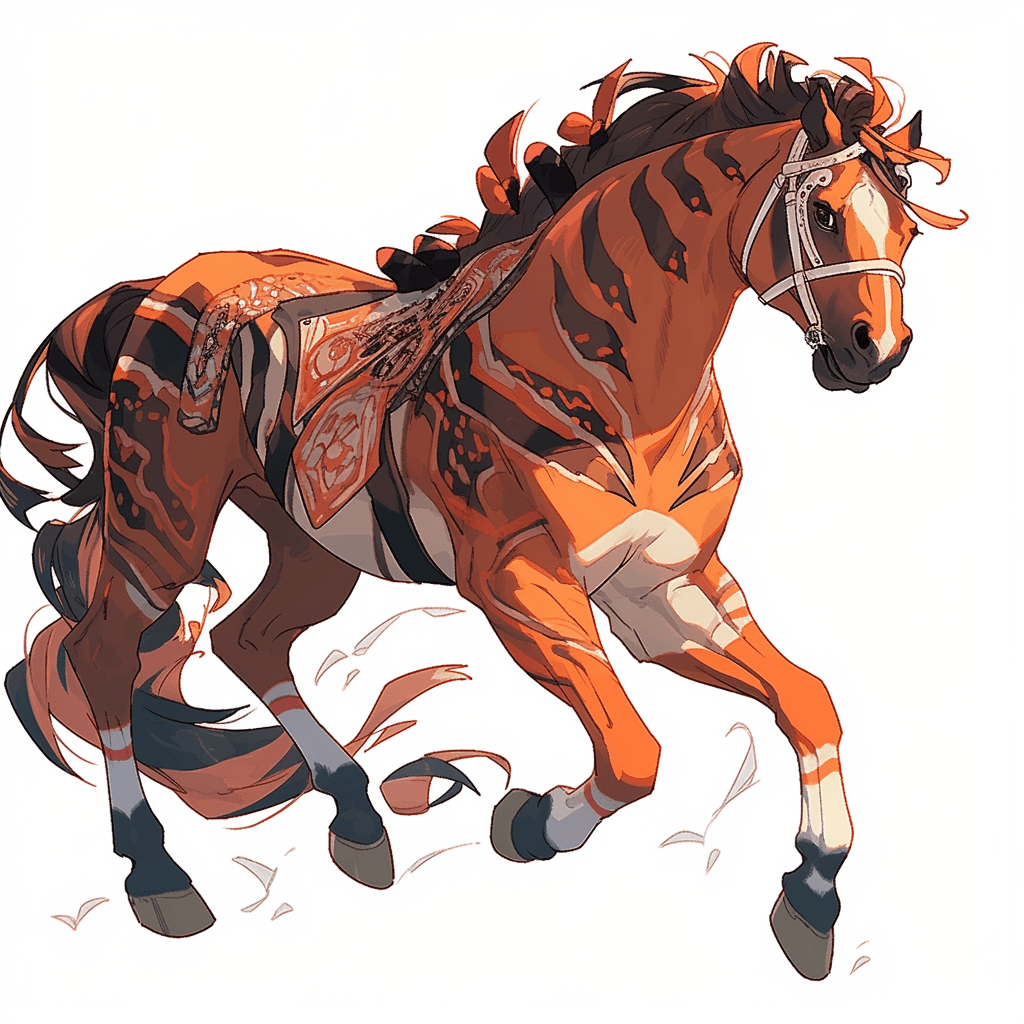Imagine you’ve found yourself in a situation that spirals out of control. Maybe it started with a simple white lie, but now it’s grown into something bigger, and you feel stuck—unable to move forward or back out gracefully.
This is exactly the feeling captured by today’s idiom: 騎虎難下 (qí hǔ nán xià), which describes being caught in a difficult situation with no easy way out.
The imagery of this chengyu is pretty vivid: it translates to “riding a tiger and finding it hard to dismount.” Once you’re on the back of a tiger, getting off isn’t exactly safe or simple!
Whether it’s in relationships, business, or even everyday challenges, we’ve all had moments where backing down feels as dangerous as moving forward.
In this article, we’ll dive into the meaning, origin, and modern use of this fascinating idiom, so you’ll know exactly when to use it next time you feel like you’re stuck riding a metaphorical tiger. Let’s jump in!
Definition of 騎虎難下
- Traditional Chinese: 騎虎難下
- Simplified Chinese: 骑虎难下
- Pinyin: qí hǔ nán xià
- English: Riding a tiger, difficult to dismount
- Definition: This chengyu describes a situation where someone is stuck in a difficult or dangerous position and finds it hard to extricate themselves without facing negative consequences. It conveys the sense of being trapped in a problem where moving forward or backward both seem risky.
History of 騎虎難下
The idiom 騎虎難下 can be traced back to the Qing dynasty and is notably found in the novel “野叟曝言” (Yě Sǒu Pù Yán), written by Zhang Zhihe (張之河). This work, published in the late 19th century, is known for its vivid storytelling and intricate use of idiomatic language.
In the novel, the phrase 騎虎難下 is used to describe a situation where someone finds themselves in a position that is too dangerous to continue, yet too risky to abandon—much like the precarious position of riding a tiger and fearing the consequences of dismounting.
While the imagery of a tiger has been used metaphorically in Chinese literature for centuries to represent danger and risk, it is in “野叟曝言” where this specific phrase became popularized.
This idiom has evolved over time, but its essence remains the same—capturing the feeling of being caught in a dilemma where neither advancing nor retreating offers a safe solution.
Modern Usage of 騎虎難下
In modern Mandarin, 騎虎難下 is widely used to describe situations where someone is trapped in a dilemma, unable to back out without facing severe consequences.
It often applies to personal, professional, or political scenarios where a decision has been made, but continuing on the current course feels risky, and stopping seems equally dangerous.
In Taiwan, this idiom is frequently heard in discussions about relationships, business ventures, or political decisions.
For instance, a company that has made significant investments in a failing project may find itself in a 騎虎難下 situation, where withdrawing would mean losing everything, but persisting could lead to further losses. The phrase conveys the pressure of having to choose between two difficult paths, both fraught with potential downsides.
- 他已經投入了大量資金,現在騎虎難下,只能硬著頭皮繼續下去。
- 當初他以為只是小事,沒想到越來越複雜,現在真的是騎虎難下來了。
- 這次的合作讓雙方都感到壓力,但騎虎難下,只能繼續完成。
- Tā yǐjīng tóurùle dàliàng zījīn, xiànzài qíhǔnánxià, zhǐ néng yìngzhe tóupí jìxù xiàqù.
- Dāngchū tā yǐwéi zhǐshì xiǎoshì, méi xiǎngdào yuè lái yuè fùzá, xiànzài zhēn de shì qíhǔnánxià láile.
- Zhècì de hézuò ràng shuāngfāng dōu gǎndào yālì, dàn qíhǔnánxià, zhǐ néng jìxù wánchéng.
- 他已经投入了大量资金,现在骑虎难下,只能硬着头皮继续下去。
- 当初他以为只是小事,没想到越来越复杂,现在真的是骑虎难下了。
- 这次的合作让双方都感到压力,但骑虎难下,只能继续完成。
- He has already invested a lot of money, and now he’s stuck in a difficult situation, having no choice but to push forward.
- He thought it was just a small issue at first, but it became increasingly complex, and now he’s truly stuck with no way out.
- Both parties feel pressured by the collaboration, but now they’re in too deep and have no choice but to continue.
Learning idioms like 騎虎難下 can really enhance your Chinese language skills, not just by expanding your vocabulary, but also by giving you insight into how Chinese culture views difficult decisions and perseverance.
Next time you find yourself in a situation where there’s no turning back, you’ll have the perfect idiom to describe it!
Keep up the great work with your Chinese learning journey, and remember: every new idiom brings you one step closer to mastering the language. Be sure to check out my list of 20 useful idioms! Stay curious, keep exploring, and enjoy the adventure!




